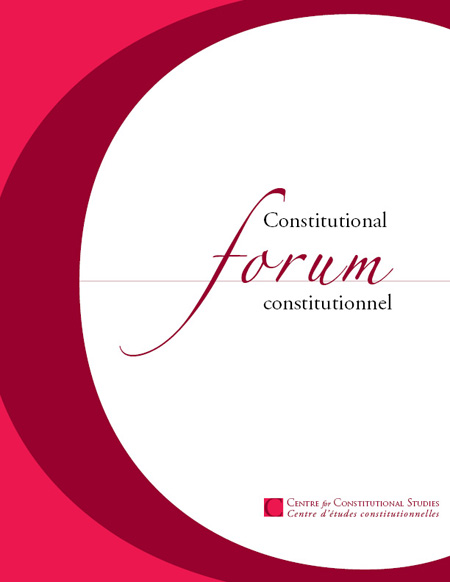Equalization, Regional Development, and Political Trust: The Section 36/Atlantic Accords Controversy
DOI :
https://doi.org/10.21991/C9WT1PRésumé
The controversy generated by the federal government’s unilateral alteration of the Atlan- tic Accords,1 and the subsequent bitter political standoff between the federal government and the provinces of Nova Scotia and Newfound- land and Labrador, was the initial stimulus for this article. The agreements, the alleged breach of trust involved in their unilateral alteration, and the political fallout, manoeuvrings, and ne- gotiations that followed, raise a number of is- sues about the mechanisms and pathologies of executive federalism in Canada. This episode also provides some insight into a continuing source of misunderstanding and grievance that persists in centre-periphery relations in Canada — the issues of equalization and regional devel- opment. The purpose of this article is to use the controversy as a case study to inquire into these issues, with a view to making an incremental contribution to the critical literature on the in- stitutions of Canadian federalism.
Téléchargements
Publié-e
Numéro
Rubrique
Licence
Les auteurs qui publient avec le Forum constitutionnel accordent à la revue le droit de première publication et s'engagent à concéder une licence d'utilisation de l'œuvre dans le cadre d'un accord d'Attribution-NonCommercial-NoDerivs (CC BY-NC-ND) qui permet à d'autres de partager l'œuvre à des fins non commerciales, avec mention de la paternité et publication initiale dans cette revue, tant que l'œuvre originale ne subit pas de modifications. Veuillez utiliser ce format pour attribuer ce travail au Forum constitutionnel:
«Publié pour la première fois en tant que : Titre de l'article, collaborateur, collaborateur, volume/émission du Forum constitutionnel, Copyright ©[année], éditeur».





